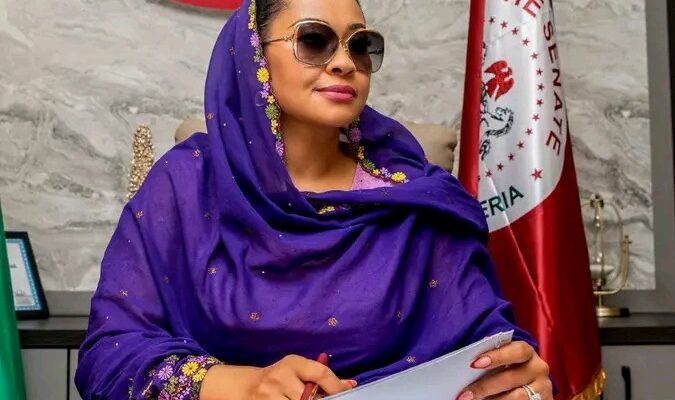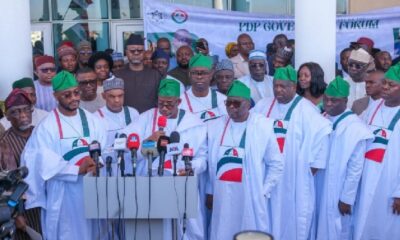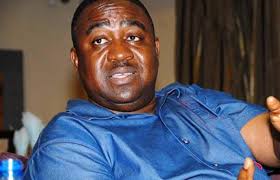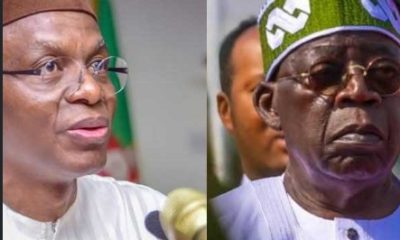News
Saudi stops stoning ritual for five hours over heatwave
By Francesca Hangeior
The Saudi Ministry of Hajj and Umrah has stopped pilgrims from proceeding to the Jamarat Bridge for the ritual of throwing stones from 11 a.m. to 4 p.m. due to extreme heat.
The Saudi Ministry of Hajj and Umrah, Dr Abdulfattah bin Sulaiman, issued the directive in a statement on Monday in Mina, Makkah, Saudi Arabia.
Sulaiman stated that the measures became necessary to ensure the well-being of pilgrims amidst high temperatures and to prevent heat stress.
“Accordingly, the following measures have been implemented: Pilgrims are prohibited from proceeding to the Jamarat Bridge for the ritual of throwing stones from 11. a.m to 4.pm.”
Speaking further, he said security personnel would be stationed at camps to enforce the restriction and prevent any pilgrim from departing before 4 p.m.
He urged the Office of Hajj Affairs and service providers to ensure compliance, adding that they would be held responsible for any violations thereof.
“We pray for Allah’s protection over the pilgrims and the acceptance of their Hajj.”
Meanwhile, the official of Nigeria’s Hajj Commission has intercepted two illegal migrants of Nigerian descent ( Muhammed Umar and Nazifi Tasi’u GARBA), over infiltration of pilgrims’ tents amidst concerns regarding overstretched accommodation and petty theft.
Consequently, the suspects were handed over to the Saudi Police, where their biometrics were obtained and a fine of 10,000 Saudi Riyals was imposed on them to be paid whenever they were leaving the country.
The Jamarat are three pillars located in Mecca and are an important part of the Hajj pilgrimage for Muslims.
As part of their pilgrimage to Mecca, pilgrims throw pebbles at the pillars to symbolically “stone the devil.”
The Stoning of the Devil—or rajm al-jamaat, translated as throwing pebbles—is a way for Muslims to reject temptation, affirm their faith in Allah, and honour the Prophet Ibrahim.
Over 1.83 million pilgrims performed this year’s hajj, according to the Saudi Gazette.
A total of 1,833,164 pilgrims came from within the Kingdom and abroad to perform the annual pilgrimage and they included 1,611,310 foreign pilgrims and 221,854 domestic pilgrims, both citizens and expatriates.
News
Lawmaker Slams NBA Over Rivers Crisis, Demands Return of N300m

News
BREAKING: Unknown gunmen reportedly storm Senator Natasha’s family residence

Senator Natasha Akpoti-Uduaghan’s family residence in Kogi was reportedy invaded by gunmen around 1 a.m. on Tuesday, April 16, leaving damaged windows but no injuries.
The incident happened at her hometown residence in Obeiba-Ihima, located in Okehi Local Government Area of Kogi State.
Sources familiar with the event said the attackers arrived around 1:00 a.m. Armed with cutlasses and guns, they damaged parts of the building, smashing windows and causing panic in the area. At least three men were involved in the attack.
Senator Natasha’s Chief Security Officer, Yakubu Ovanja, quickly informed the appropriate security agencies.
In response, officers from the Okehi Police Division rushed to the scene.
Although nobody was hurt and no suspects have been arrested yet, security officials recorded the extent of the damage and launched a preliminary investigation.
The reason behind the attack is still unknown, and as of now, Senator Akpoti-Uduaghan has not released any official statement. She represents Kogi Central in the Senate and is known as a vocal figure in Nigerian politics.
According to Zagazola Makama, police are still trying to figure out what motivated the attackers and are working to find those responsible.
News
SAD! Again, Alleged Herdsmen Attack Three Benue Communities

The communities came under simultaneous attacks just a day after the killing of 11 persons at Otobi Community also in Otukpo LGA.
Benue has in the past decade experienced incessant attacks.
Suspected herdsmen have again stepped up violent attacks as no fewer than three communities in the Otukpo Local Government Area (LGA) of Benue State were attacked on Wednesday.
The communities affected during the fresh attacks include Emichi, Odudaje, and Okpamaju all in Otukpo where five persons were killed in February. The communities came under simultaneous attacks just a day after the killing of 11 persons at Otobi Community also in Otukpo LGA.
Local sources confirm that several people may have been feared dead again in the fresh attack.
Wednesday’s attack came hours after Governor Hyacinth Alia confirmed the arrest of three suspected herders in connection with the invasion of Otobi village on Tuesday night.
When contacted, Otukpo LGA Chairman, Maxwell Ogiri, confirmed the attack on the three communities, saying that the attackers stormed the communities at the time when the Commissioner of Police was still at the Ochidoma Palace over the previous day’s attack on Otobi.
He added that three people sustained injury in the attacks on the three communities, leading to women and children abandoning the communities for fear of being killed.
“Only young men were in the communities when the attackers arrived. The prompt response from combined security operatives made the attackers flee and none of them were arrested,” Ogiri stated.
The police spokesperson in the state, Sewuese Anene, was yet to confirm details of the attacks on the three communities.
-

 News24 hours ago
News24 hours agoPDP governors declare support for Tinubu
-

 News2 hours ago
News2 hours agoBREAKING: Unknown gunmen reportedly storm Senator Natasha’s family residence
-

 News24 hours ago
News24 hours agoN1.3trn CBEX Scam: EFCC caution Nigerians against Ponzi Schemes
-

 News5 hours ago
News5 hours agoSnub story on removal of Rivers Sole Administrator, it’s FAKE-Chief Registrar
-

 News10 hours ago
News10 hours ago“How my father escaped assassination” – Bishop Oyedepo’s daughter
-

 News11 hours ago
News11 hours agoFG expresses sympathy for CBEX victims, urges a united effort to combat Ponzi schemes
-

 News23 hours ago
News23 hours agoSuswan kicks as PDP governors reject merger talks
-

 News17 hours ago
News17 hours agoEl-Rufai labels Tinubu’s government ‘worst in Nigeria’s history’





